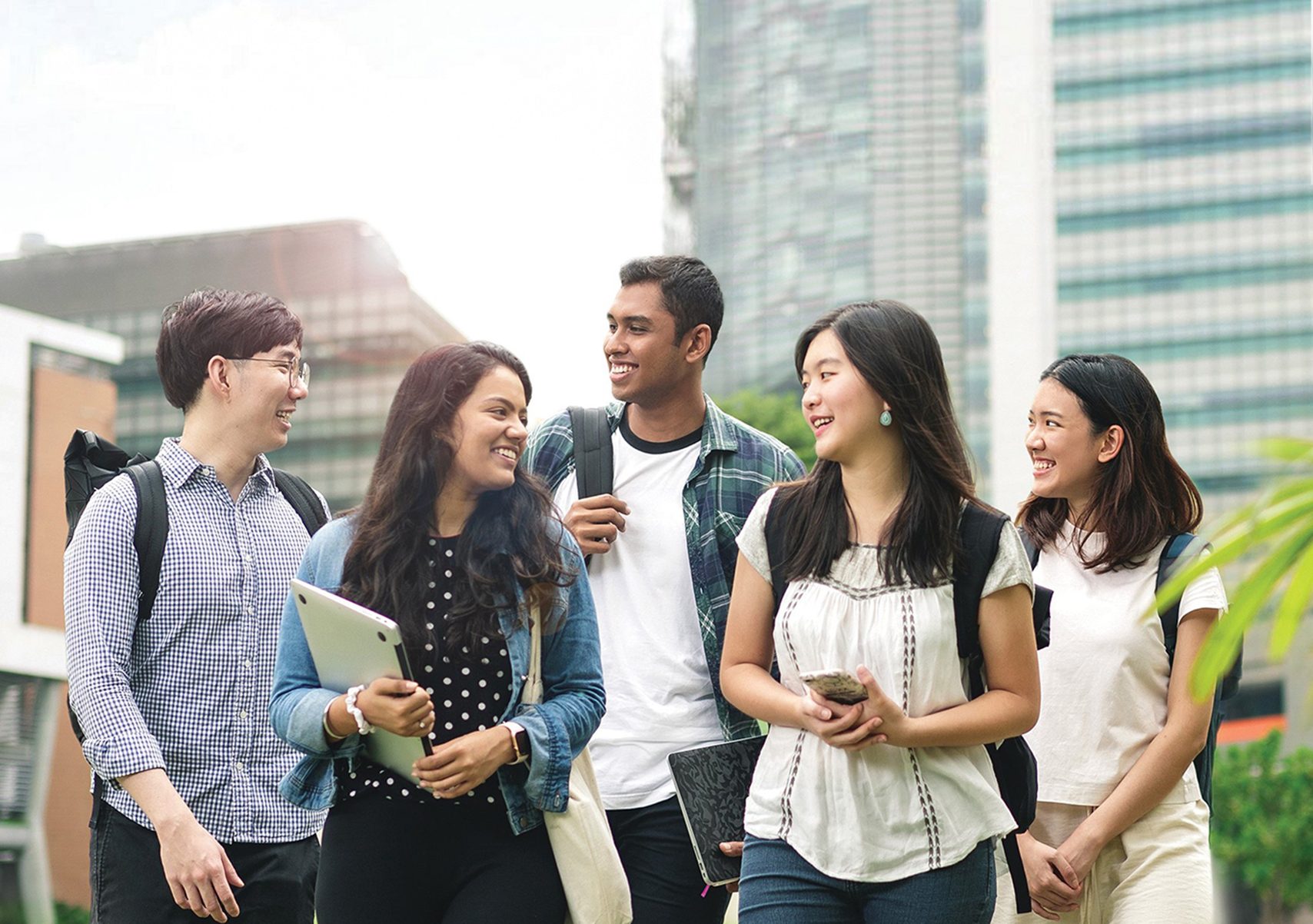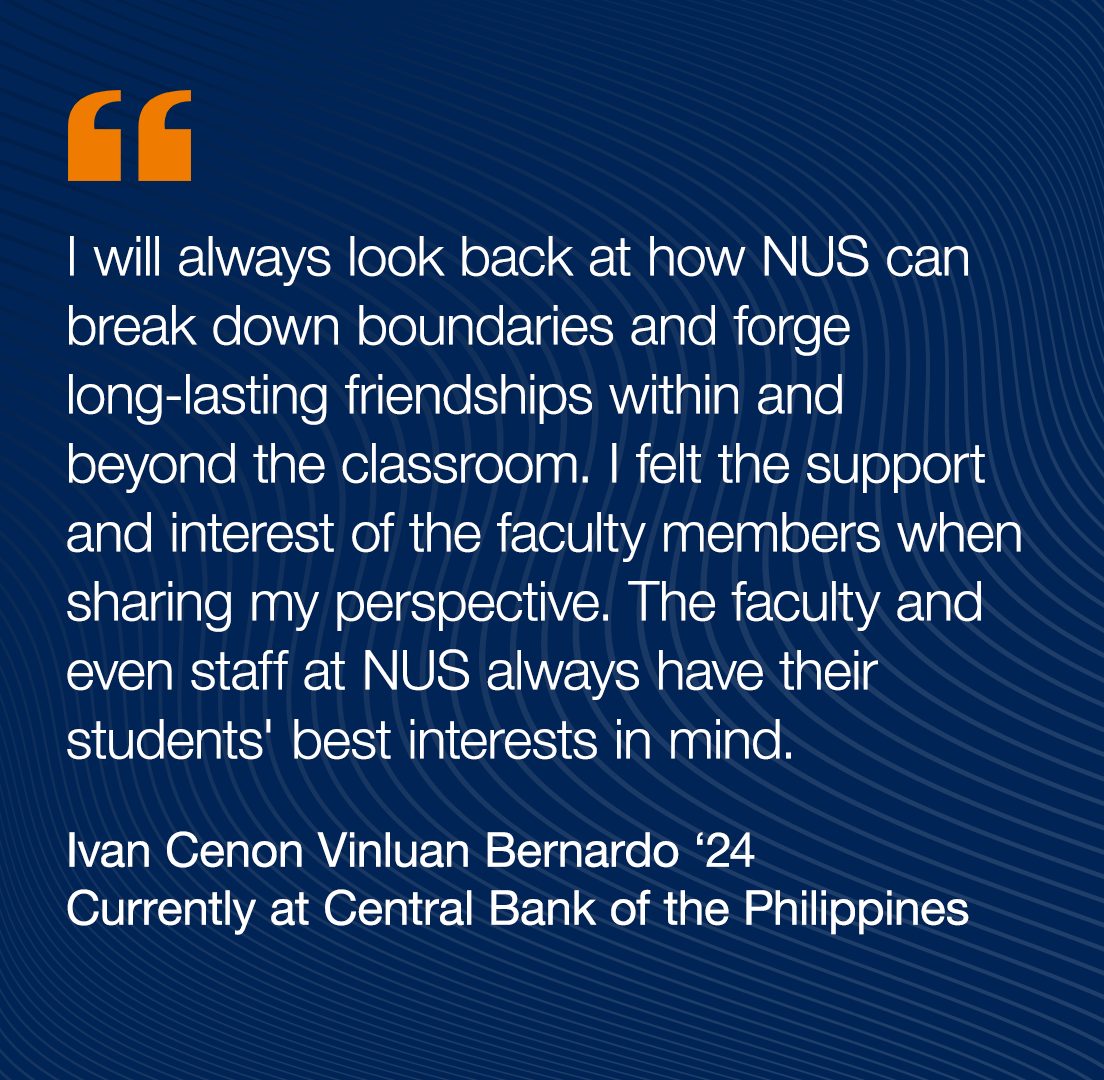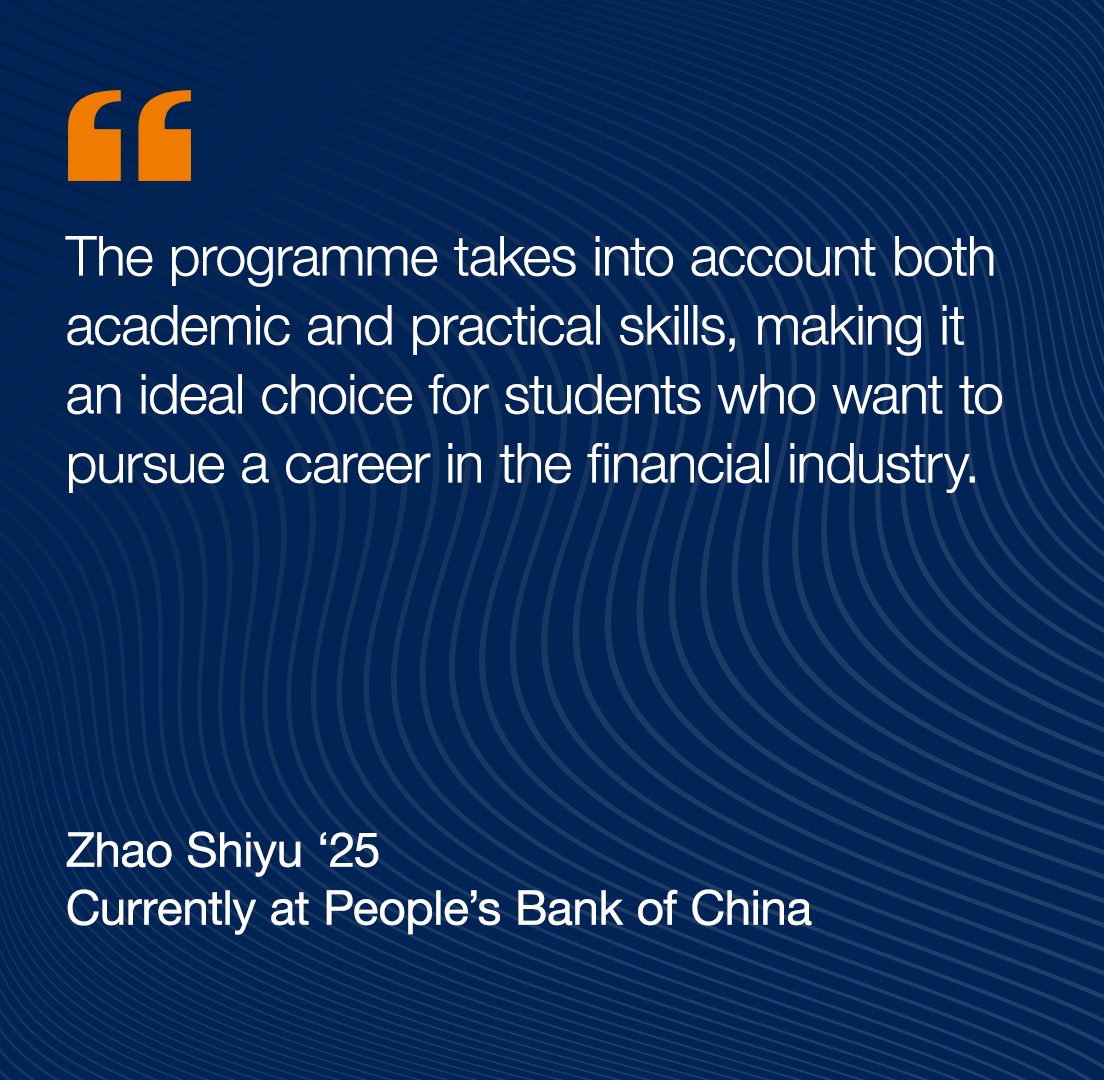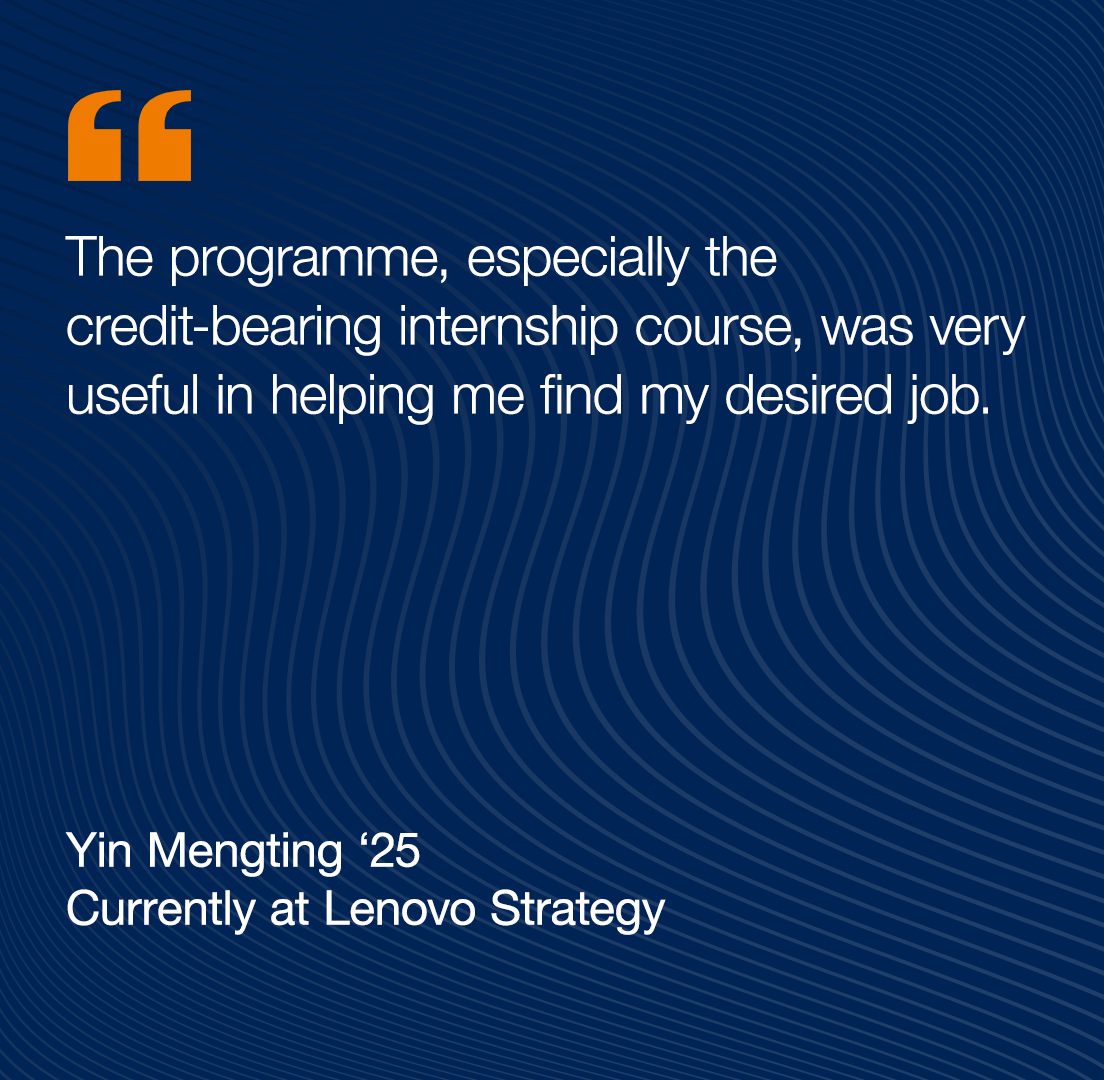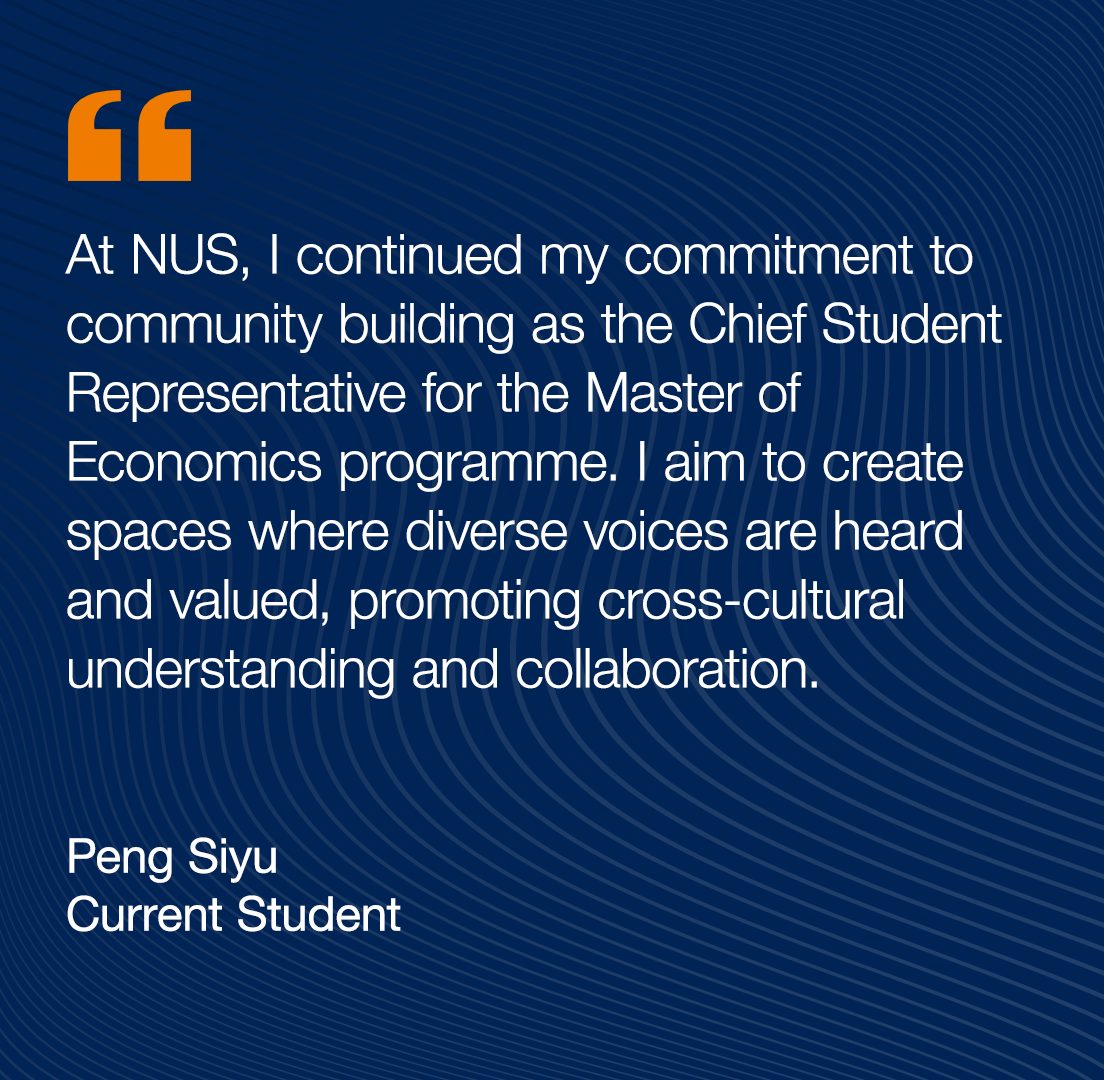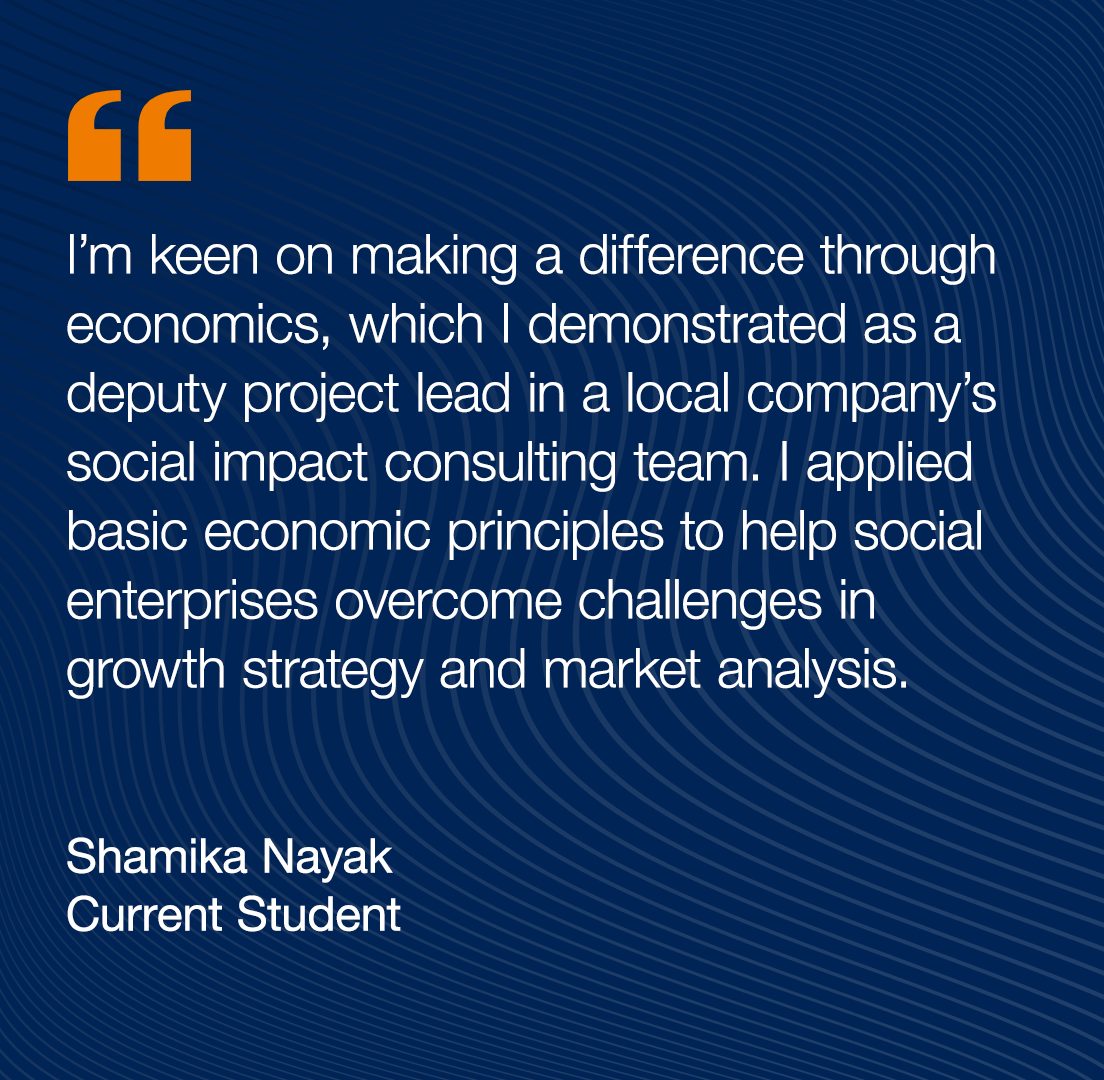The world faces crucial economic questions in the years to come. How can digital platforms and artificial intelligence be harnessed and how should they be regulated? Is it possible to create jobs and wealth while reducing carbon emissions? How can we make our food and energy sources more secure while keeping inflation in check?
The National University of Singapore’s (NUS), Master of Economics equips its graduates to tackle these questions and become leading businesspeople, policymakers, and researchers. It is a course designed for this very moment.
Master the future of economics at the National University of Singapore
Microeconomics is one of Associate Professor Zhang’s passions, and she is careful to balance the discipline’s abstract models with their practical relevance. “On the one hand, the advanced topics we cover in the course, such as general equilibrium, game theory, and asymmetric information, can only be fully understood through building and solving models,” she explains.
“On the other hand, the mathematical abstraction involved can make it difficult for students to appreciate the real-world relevance of economics. I try my best to strike a balance between rigour and relevance.”
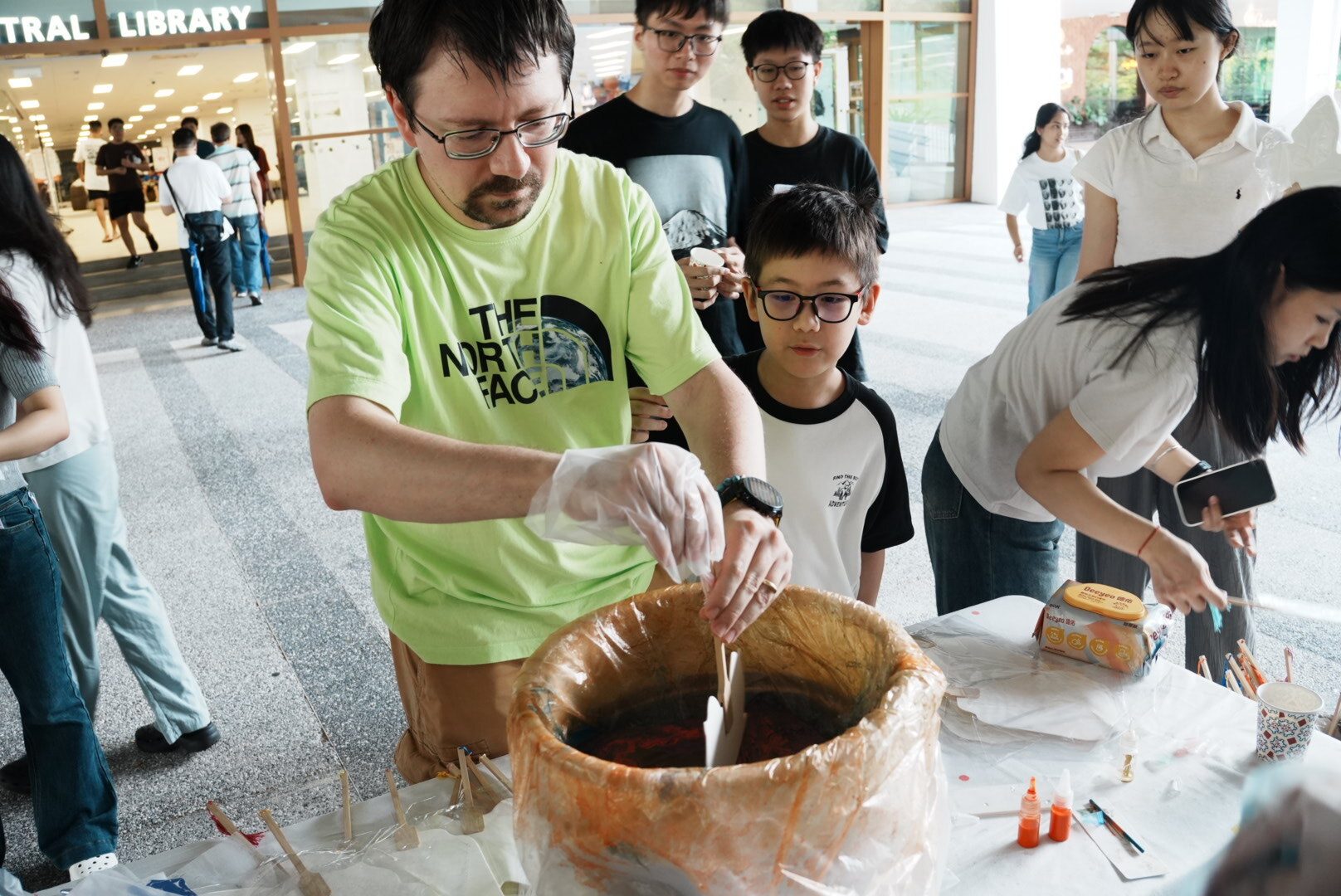
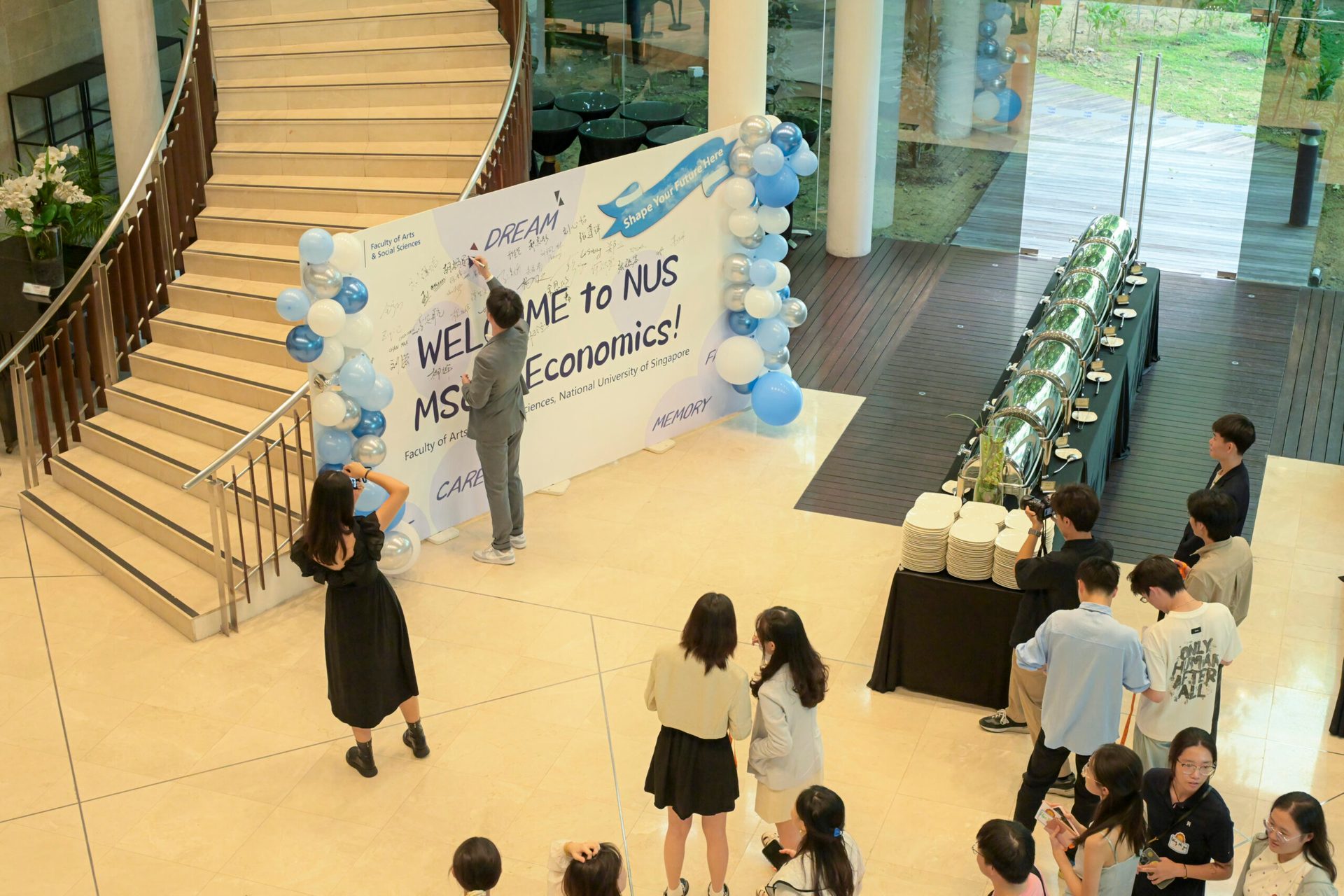
She achieves this by simplifying complex mathematics whenever possible, focusing instead on intuition and practical application. Take, for example, her teaching on Giffen goods — a counterintuitive case where higher prices can lead to higher consumption. Rather than treating it as a textbook paradox, she uses empirical evidence to show how this can emerge in contexts of poverty and food subsidies.
Rigour meets relevance
“Our core curriculum is designed to build strong analytical and quantitative foundations, equipping students to engage with complex economic issues. Elective courses, on the other hand, place greater emphasis on the application of economics. Drawing on our large pool of faculty with broad research interests, we offer a rich selection of electives that enable our students to explore how economics is used in forecasting, finance, market design, and public policy, among others.”
- Associate Professor Zhang Yang
The Master of Economics is not static, and Associate Professor Zhang has been at the forefront of curriculum renewal. Recognising shifts in the global economy, she and her colleagues have introduced electives in data science, environmental economics, and intellectual property, alongside an internship course that connects theory with professional practice.
Since joining NUS in 2012, Dr. Denis Tkachenko has been a driving force behind the move in the Department of Economics towards data-driven learning. His flagship contribution to the Master of Economics is the course Machine Learning and Economic Forecasting.
Adapting to a changing world
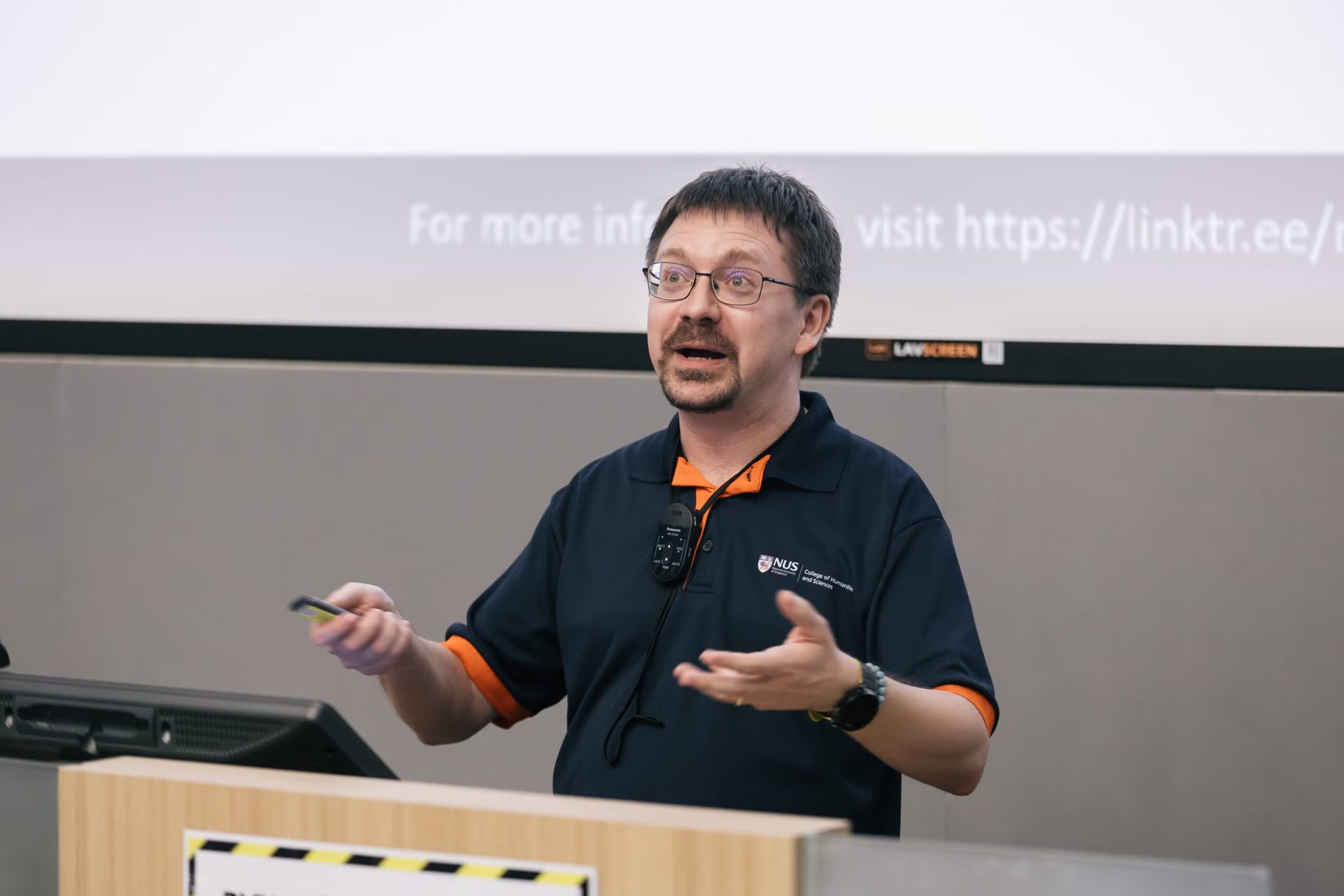
Introduced in 2020, the course equips students with machine learning techniques specifically tailored for time series data — the type of information very commonly found in economics and finance. Unlike standard machine learning courses that focus on static datasets, Dr. Tkachenko trains students to handle variables that evolve over time, from GDP growth to exchange rates.
Students start small, using “toy” datasets to grasp core concepts, before tackling full-scale projects with FRED-MD, a benchmark dataset containing hundreds of monthly economic series from the US Federal Reserve Bank of St. Louis. They learn to implement algorithms, test methods on real-world economic indicators, and evaluate which variables matter most. The course culminates in group projects where teams build forecasting models for datasets of their choice, submit all code and data, and present results.
“My course gives students the tools that are frequently expected of them in the current workplace. This is because a lot of jobs require students to forecast various aspects of the business. I provide them with a thorough understanding of how to apply (and when not to apply) machine learning algorithms for prediction, focusing particularly on time series data –– something that machine learning courses in computer science or statistics tend to ignore.”
- Dr. Denis Tkachenko
Beyond his own elective, Dr. Tkachenko helps coordinate the broader data science sequence in the Master of Economics. Together, these courses create a pathway that enables students to develop skills at the intersection of economics and computer science. For many, this exposure is their first serious encounter with coding and advanced computational methods, but Dr. Tkachenko makes accessibility central.
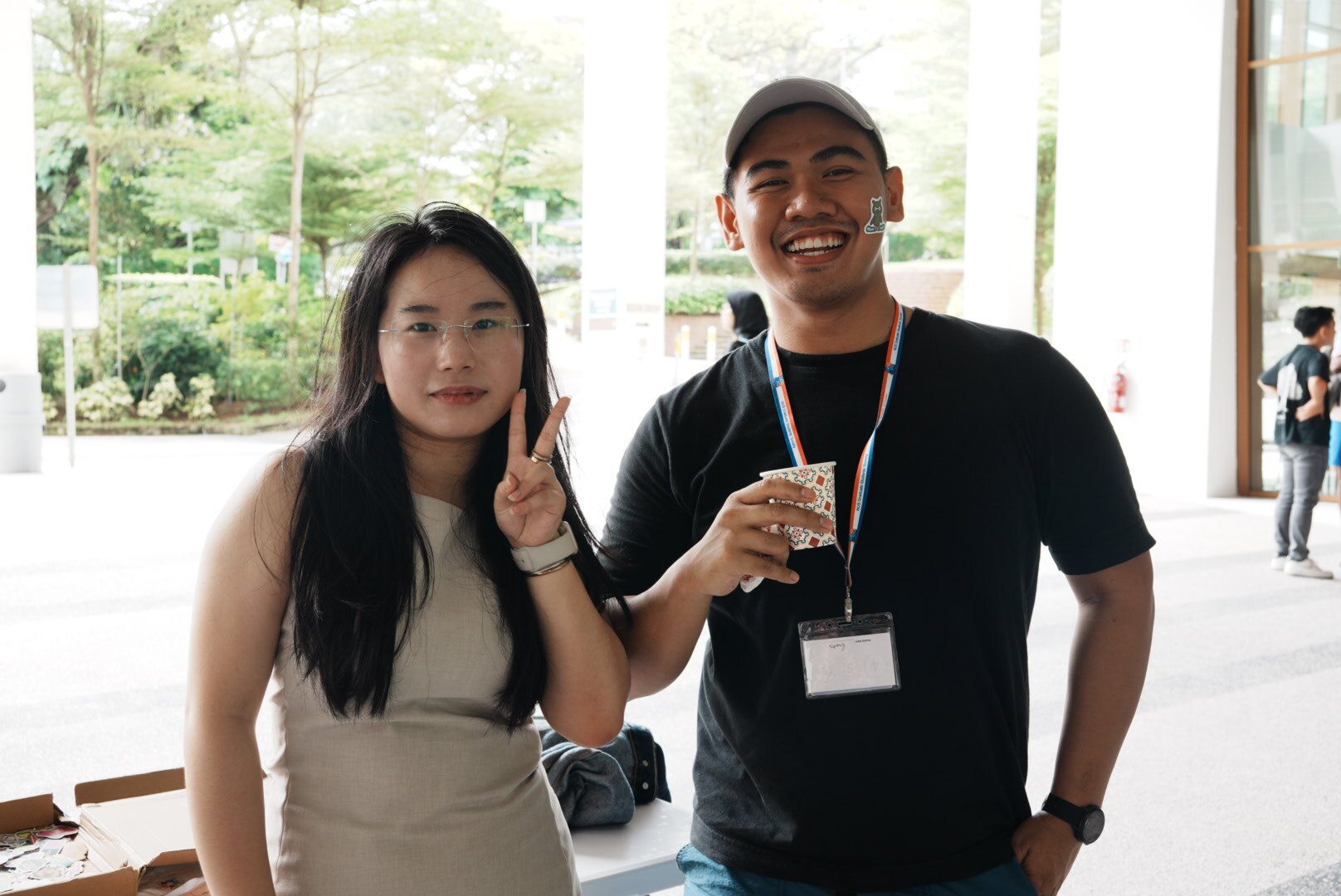
Bridging economics and computer science
“I solve this by providing very thoroughly annotated code scripts for every lecture –– literally every result students see in the slides is replicated in the code and there are comments about how it was obtained, what the functions and options mean, etc.,” he shares. “For students wishing for more details on coding, for each lecture I record a narrated guide through the code, so that there are about eight hours of video content for students who want to go step-by-step through the code.”
To study economics in Singapore is to study in one of the world’s most dynamic economies — a nation that consistently ranks among the world’s top financial centres. The city-state is home to over 4,200 multinational corporations, a thriving fintech ecosystem, and serves as ASEAN’s de facto hub for trade, finance, and digital innovation. Its economy is export-oriented and globally integrated, with policies that make it one of the most business-friendly places in the world. In Singapore, students have a front-row seat to decisions that ripple across the globe.
“The programme benefits from a strategic location,” says Associate Professor Zhang. “Singapore, as a regional economic hub, offers students proximity to the vibrant Asian economies. I also feel that Singapore’s unique multicultural environment makes it a fun and enriching place to live and study.”
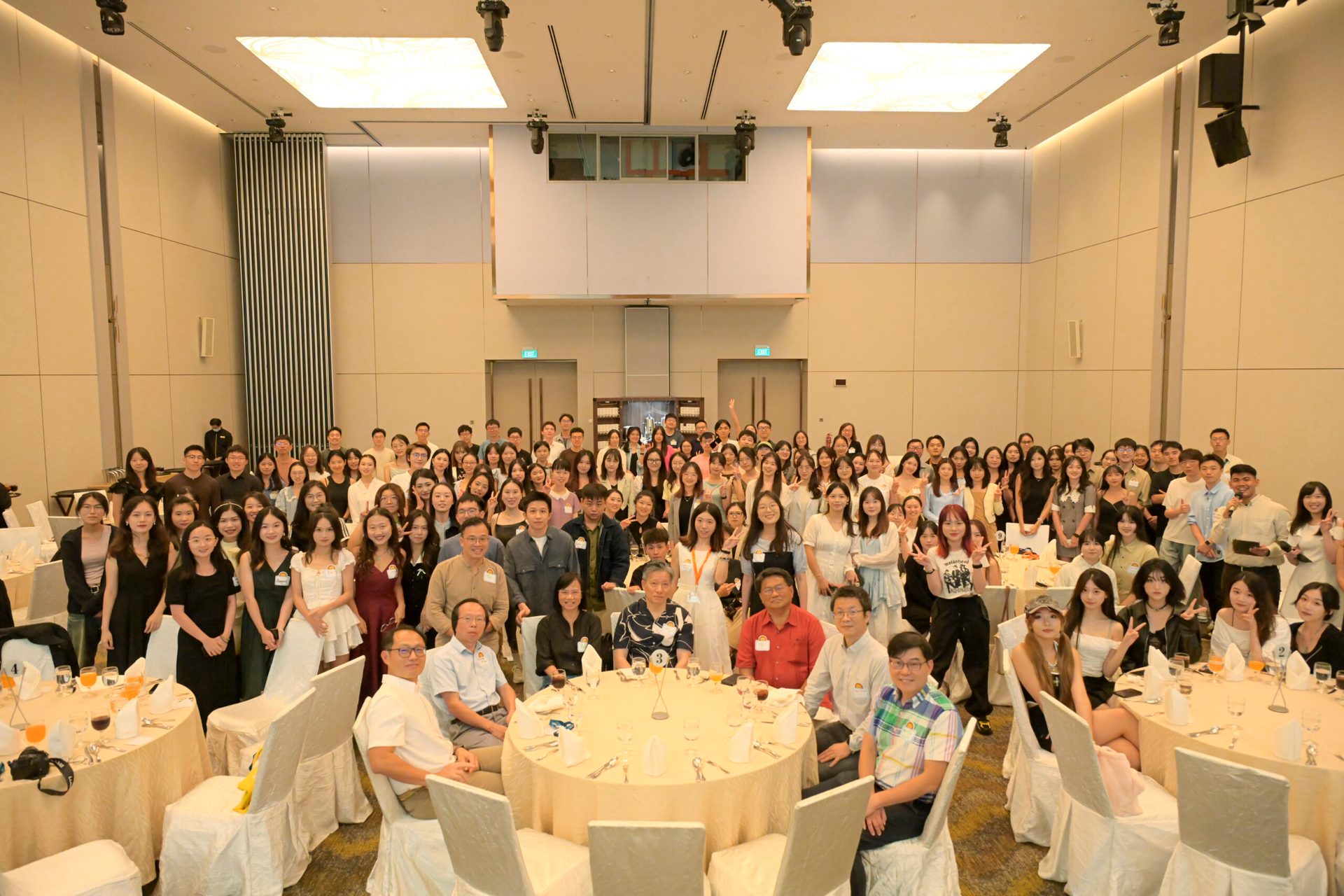
Singapore: A living laboratory
Hear from more students


In some courses, MSc students can work in the lab for an entire year — an opportunity many use to build research portfolios for further study. “Many students are excellent and went on to do PhDs in NUS or other institutes,” Dr. He shares.
NUS’s commitment to evolving with both industry input and student feedback is another key pillar of the MSc. A recent revamp of the materials characterisation module, for instance, was directly informed by both groups


Dr. Wang also teaches a module that’s as experiential as it is foundational. Thermodynamics for Sustainability examines energy conversion through the lens of physical principles. It directly links to his lab’s research on electrified chemistry, a “globally unique research platform, established in Singapore.”
For him, bringing real-world context into the classroom is a top priority. “I take great pride in translating insights from my research into the classroom, enabling students to grasp complex physical principles through real-world applications,” he says. And each year, his lab opens its doors to MSc students, offering research projects in large-scale energy storage, recycling of waste battery materials, and on-demand hydrogen production.
Students can also apply knowledge in the Research Centre for Electrochemical Systems and Technologies (CREST), which was established by the Department of Materials Science and Engineering in 2023. Apart from solving urgent environmental and societal problems through translational research, CREST plays a major educational role. It provides MSc students with exposure, while fostering innovation and encouraging entrepreneurship in the field of electrochemical technologies
The department even maintains close ties with leading Agency for Science, Technology and Research (A*STAR) research institutes. “These experts offer cutting-edge research projects to MSc students, providing them with valuable exposure to the frontiers of materials science and engineering,” says Dr. Wang.
Hands-on research, real impact
“We recognised the need to strengthen students’ fundamental understanding –– not just theoretically, but in terms of hands-on application,” says Dr. He. “We restructured the module to include more focused background lectures and significantly expanded the practical components.”
In 2026, NUS will launch a dedicated MSc in Materials for Energy Innovation and Sustainability, replacing the current specialisation. Dr. He sees this as vital: “Sustainability is one of the most pressing — if not the most urgent — challenges humanity faces today,” he says.
By anchoring the topic within a standalone programme, students can go deeper into materials-centric solutions like hydrogen catalysts, high-performance batteries, photovoltaics, and lightweight transport materials.
New programme, deeper focus
This combination responds directly to demand. Surveys of previous cohorts, alongside curriculum analysis, were taken into account. What Dr. Wang and his team found was that topics related to Materials for Energy Innovation and Sustainability consistently attract the most student interest.
“The Curriculum Committee curated a comprehensive set of courses to help students develop a strong foundation in the energy and sustainability sectors,” explains Dr. Wang. “The curriculum incorporates the latest advancements, including data-driven approaches using artificial intelligence for energy materials development and breakthrough technologies in energy conversion and storage aimed at environmental sustainability.”
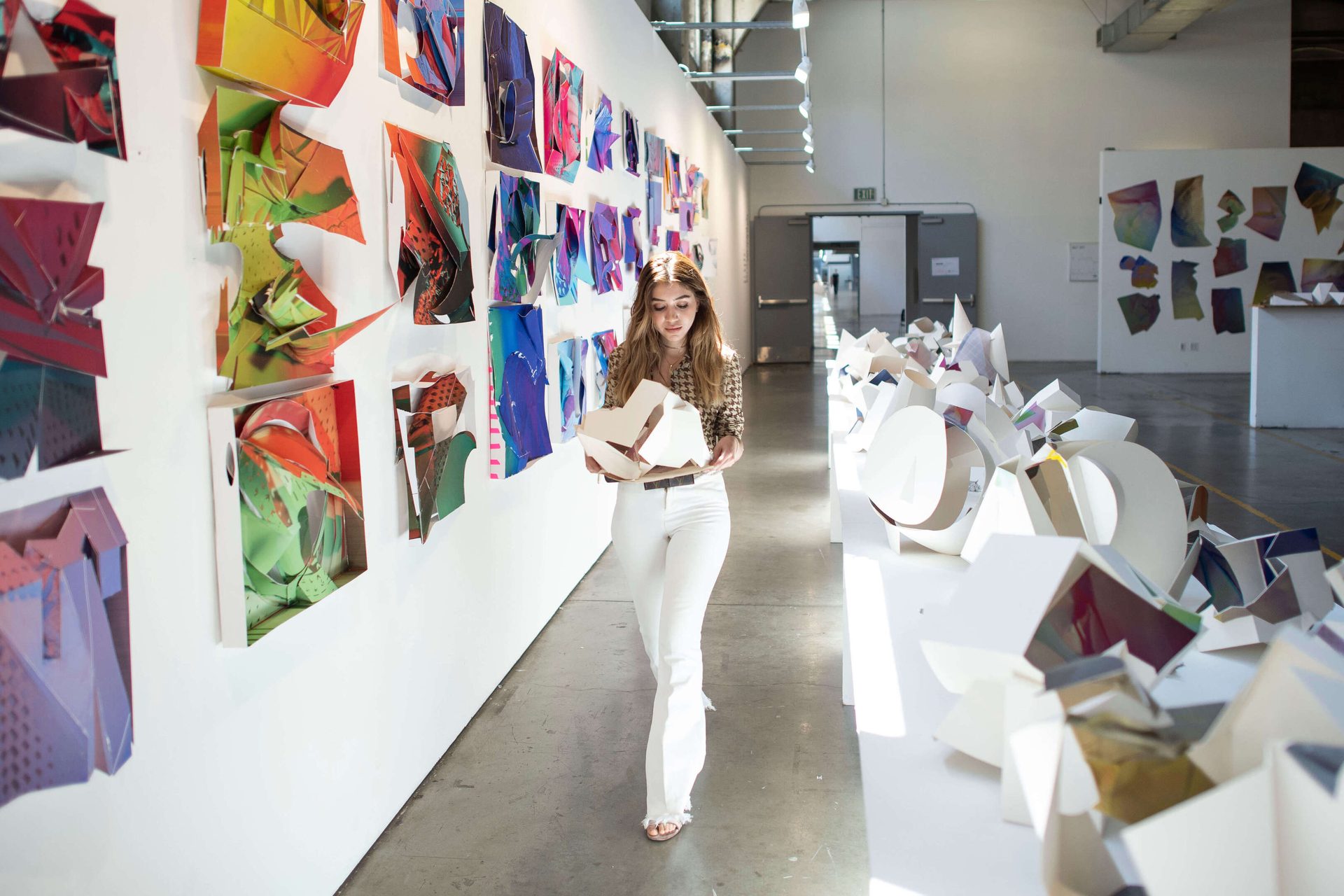
A future-focused economics education awaits at the National University of Singapore.


